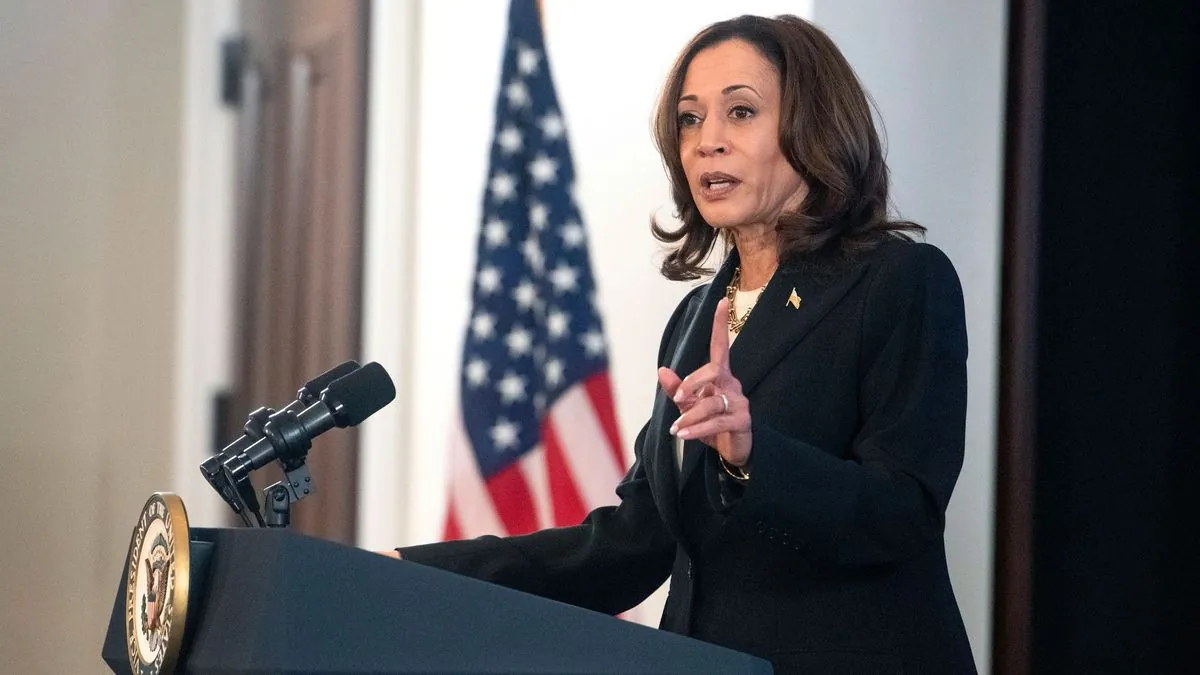Harris-Walz Ticket: A New Era for Health-Care Corporate Scrutiny?
Former critics of health-care conglomerates, Kamala Harris and Tim Walz, now face industry pressure as potential leaders. Their past actions and evolving stances raise questions about future health-care policy.

In the ever-evolving landscape of American health care, the potential Harris-Walz administration presents an intriguing prospect for those concerned about corporate consolidation in the industry. Both Kamala Harris and Tim Walz have histories of challenging health-care conglomerates, but their recent actions have raised questions about their future approach to this critical issue.
Tim Walz, currently serving as Minnesota's 41st governor since 2018, first gained attention for his stance on health-care consolidation during his tenure as a congressman. In 2017, he publicly criticized the Mayo Clinic, a world-renowned medical institution founded in 1864, for shutting down services at small hospitals across his district. Walz expressed concern about the impact on patients, stating, "It's just hubris. These big consolidations of health care, [we're] going to have to deal with this across the country."
However, Walz's position has evolved since becoming governor. In a recent showdown with the Mayo Clinic over health-care affordability measures and nurse staffing rules, Walz ultimately sided with the medical giant, surprising his allies in the legislature. This shift highlights the complex relationship between politicians and powerful health-care institutions, which often serve as major employers and economic drivers in their regions.
Kamala Harris, who served as California's Attorney General from 2011 to 2017, has a strong record of tackling health-care consolidation. During her tenure, she intervened in hospital mergers that could have resulted in reduced competition or increased costs for patients. Her efforts led to a lawsuit against Sutter Health, one of California's largest hospital chains, alleging anticompetitive behavior.

The Biden administration has taken an aggressive stance on health-care corporations, surpassing previous administrations in its efforts to combat consolidation. This approach aligns with growing bipartisan agreement on the need to address the issue. Health care spending in the United States reached a staggering $4.3 trillion in 2021, or $12,914 per person, underscoring the urgency of tackling rising costs and reduced access.
Both Harris and Walz have also focused on other aspects of health-care reform. In 2020, Walz oversaw legislation capping out-of-pocket spending on insulin for Minnesotans, predating a similar effort by the Biden administration for Medicare patients in 2022. These actions demonstrate a commitment to addressing the high costs of prescription drugs, a key concern for many Americans.
However, the health-care industry has pushed back against increased scrutiny. UnitedHealthcare, the nation's largest health insurer, recently sued the Walz administration over a policy blocking it from participating in Minnesota's Medicaid managed care plan. This resistance highlights the challenges faced by politicians attempting to regulate the industry.
"If you're a health-care conglomerate that's using its market power to raise prices, then I would be concerned" about a Harris-Walz administration.
As the 2024 presidential race heats up, the health-care industry and voters alike will be watching closely to see how Harris and Walz balance their past criticisms of corporate power with the realities of governing. The outcome of this delicate balancing act could have far-reaching implications for the future of health care in America.


































